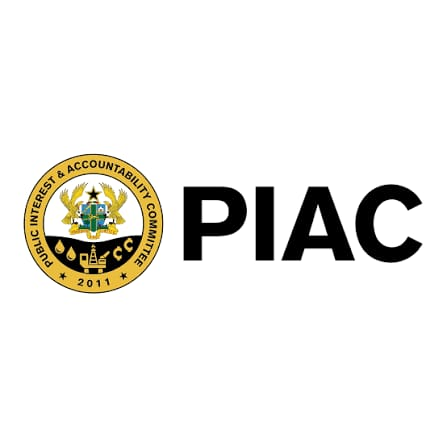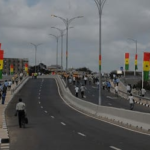Ghana’s petroleum oversight body, the Public Interest and Accountability Committee (PIAC), says it is unable to fully perform its mandate after receiving just GH¢4.6 million of a requested GH¢20.5 million budget for 2025 a funding shortfall that has halted key monitoring and public engagement activities across the country.
According to PIAC, only one of its four planned quarterly monitoring visits has been carried out this year, with the committee now relying on international partners to finance even basic operations such as public forums. This marks a major reversal from 2024, when government provided nearly all of PIAC’s GH¢11.3 million budget directly from petroleum revenues.
The drastic reduction follows the passage of the Petroleum Revenue Management (Amendment) Act, 2025, which removed PIAC’s funding from the Annual Budget Funding Amount (ABFA). The watchdog must now depend on general budgetary allocations through the Ministry of Finance, the same ministry it is mandated to scrutinize.
The approved amount represents just 21.43% of PIAC’s annual budget and 41.07% of the previous year’s funding. Officials disclosed during a recent stakeholder engagement that the shortfall forced the cancellation of planned outreach activities in the Ashanti and Central Regions, with only the Kumasi forum going ahead, funded by Good Governance Africa.
Loss of Dedicated Petroleum Funding
From 2016 to 2024, PIAC enjoyed a stable financing structure through direct petroleum revenue allocations, receiving on average 85.5% of its requested budgets annually. Before that arrangement, between 2011 and 2015, PIAC struggled to operate on just 31% of approved budgets, often depending on donor support to remain functional.
The new amendment, signed into law by President John Dramani Mahama on April 2, 2025, directs all ABFA funds exclusively toward infrastructure development, in line with government’s “Big Push” agenda for large-scale national projects.
However, stakeholders at the recent PIAC forum questioned whether consolidating oil revenue for infrastructure might spread limited funds too thinly across multiple projects, potentially undermining impact.
Broader Sectoral Impacts
The changes also affect other petroleum-linked entities. The Ghana Infrastructure Investment Fund (GIIF), for instance, has been excluded from ABFA support, despite its previous investments in high-impact projects like the Kotoka International Airport Terminal 3, which yielded returns of US$5.5 million between 2017 and 2019.
Similarly, the Agenda 111 hospital projects face uncertain financing after losing petroleum revenue allocations. Between 2021 and 2024, the ABFA contributed GH¢2.61 billion, about 65% of total project expenditure. PIAC warned that relying solely on government’s one-off allocations could jeopardize the initiative’s completion.
There are also implications for the Ghana National Petroleum Corporation (GNPC), whose share of petroleum revenues for operations and institutional development was halved from 30% to 15% of net carried and participating interest.
Transparency and Oversight at Risk
PIAC officials have criticized the government for enacting the amendment without adequate stakeholder consultation, despite a multi-institutional review process launched in 2018 involving the Ministry of Finance, Bank of Ghana, Ghana Revenue Authority, GNPC, and PIAC itself.
The Petroleum Revenue Management Act (PRMA), passed in 2011 after extensive public engagement, was designed to ensure transparent and independent management of Ghana’s oil wealth. PIAC’s dedicated funding was a key safeguard to insulate oversight from political influence.
A representative of the Natural Resource Governance Institute (NRGI) cautioned that the new arrangement undermines PIAC’s independence. Allowing the Finance Minister to determine funding for a body that monitors his ministry, he argued, presents a clear conflict of interest.
Falling Production and Declining Revenues
PIAC’s recent reports also paint a worrying picture of the petroleum sector’s performance. Crude oil output fell by 26% in the first half of 2025 from 24.86 million barrels to 18.42 million barrels, while petroleum receipts dropped by 56%, from US$840.77 million to US$370.34 million year-on-year.
No new petroleum agreements have been signed since 2018, and production has declined for five consecutive years amid stagnant exploration investment. Unpaid surface rentals ballooned to US$2.82 million by mid-2025, up from US$439,000 a year earlier, despite repeated recovery efforts by the Ghana Revenue Authority (GRA).
PIAC has urged stronger collaboration among the GRA, Petroleum Commission, Bank of Ghana, and Ministry of Energy to recover arrears and stabilize the sector.
Uncertain Future for Oversight
Since its establishment in 2011, PIAC has published 27 statutory reports, widely regarded as authoritative references on Ghana’s petroleum revenue management. Its findings have shaped both the 2015 and 2025 PRMA amendments.
However, the committee’s 2025 semi-annual report typically released in July has been delayed due to financial constraints. Officials admit that lack of funds has hampered monitoring, public engagement, and data analysis activities essential for producing credible reports.
Some analysts have stated that unless the current funding structure is revisited, PIAC’s independence and effectiveness could be severely compromised. Others argue that the situation underscores the need for legislative reforms to restore dedicated petroleum revenue support.
What remains evident is that Ghana’s management of its oil wealth continues to fluctuate with political priorities threatening the consistency and transparency the PRMA was originally designed to secure.
Source: energycrossroad.com



